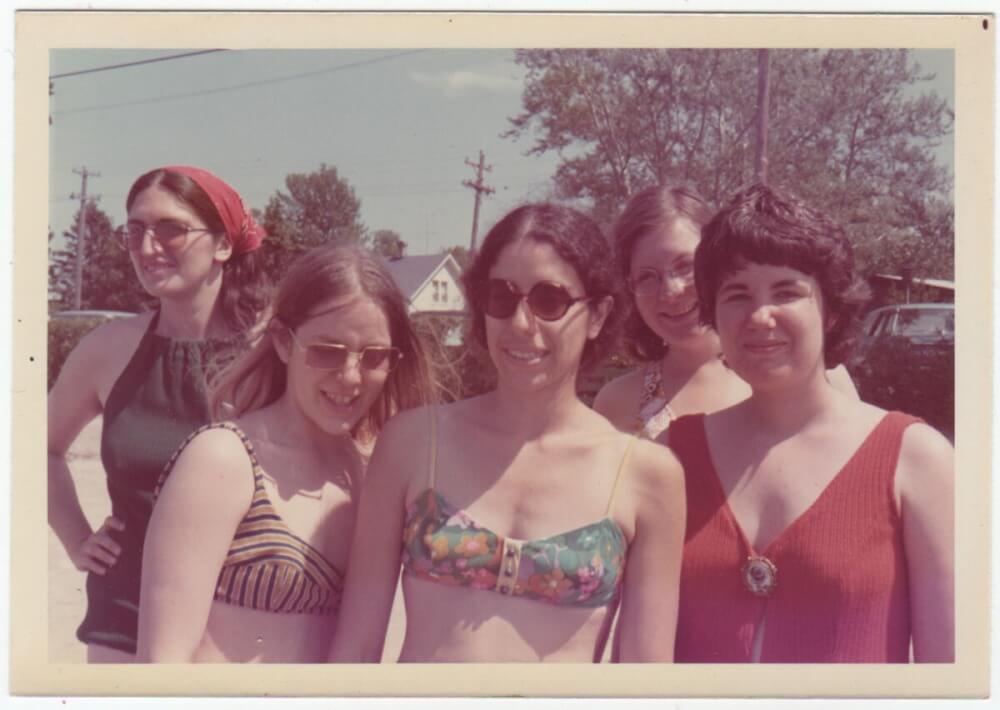When she was just 24, in 1969, Abby Pariser joined “Jane,” a group of women who provided reproductive health services in the Chicago area before Roe v. Wade was passed. They offered abortions on a sliding scale to many poor, mostly Black and Brown women, and got the word out about their services with notices that simply read, “Pregnant? Don’t want to be? Call Jane.” During the four years they were active, Jane provided over 11,000 abortions.
At first, Pariser’s work was simple. “I signed up to be a counselor, which involved calling people [who had left us messages] and saying, ‘Hi. This is Jane. Why don’t you come over to my apartment and I can tell you all about it?’ We were very trusting. And they were, too, because it was illegal.”
In those days, women with means could find doctors who performed abortions – for a price. “One of the ways [doctors] did it was to take blood out of the woman’s arm, squirt it into her vagina, and say, ‘Go to the emergency room, tell them you’re miscarrying, and ask for me,’” Pariser explains. “And then the doctor would show up [at the hospital] and say, ‘Oh! You’re having a miscarriage! We’ll have to do a D&C [abortion] on you!’”
“We had to treat the women with respect and be gentle and say exactly what we’d be doing. Like, ‘Now we’re going to put the speculum in. Now you’re going to feel cramps.’”- Abby Pariser
By 1970, New York, Colorado, California, and Hawaii had legalized the procedure, and wealthier women could simply fly to a state where abortion was legal, while Jane continued providing the service to those with fewer options. For a while, Jane had a man working for them who claimed to be a doctor, and who would perform the procedure. But “not very long into this, people discovered he wasn’t a doctor– he had worked with a surgeon who also had been doing illegal abortions, and he learned to do it. At some point, a couple of the women said, ‘Gee, why don’t you teach us?’ And he was happy to do so. He liked the money, but he didn’t like the long hours and the traveling.” After a few women learned, they taught some others, including Pariser. “They decided we were trustworthy and adept and careful and kind,” she says. “We had to treat the women with respect and be gentle and say exactly what we’d be doing. Like, ‘Now we’re going to put the speculum in. Now you’re going to feel cramps.’ And we’d have someone sitting near the patient’s head, holding her hand and trying to comfort or distract her.”
When asked if she ever felt scared because she was breaking the law, Pariser says, “The first time I was at an orientation, they said, ‘You know this is illegal.’ I went home and was like, ‘Do I really want to do this?’ And then I met the first 10 or 20 women that I was counseling, and the answer was, ‘Yeah!’ Because these women needed our help.”
It all came crashing down, however, on May 3, 1972, when the apartment they’d been working in was raided, and Pariser was among seven members of the group who were arrested. The police weren’t nasty – but they were a bit clueless. “We actually thought they were a riot,” she says. “They kept running around the apartment looking for ‘the doctor.’ Opening closets, opening doors. We were on the 11th floor, and they opened the window to see if ‘the doctor’ was hanging out of it.” The group spent the night in jail and they were all eventually released to await trial on serious charges. “Eleven counts of abortion and conspiracy to commit abortion, each of which carried 10 years, or something like that, in the state penitentiary,” Pariser says.
After a number of failed attempts, they eventually landed a fantastic lawyer – Jo-Anne Wolfson. Wolfson discovered that the Supreme Court was getting ready to consider Roe v. Wade and decided that stalling would be the best tactic. “Jo-Anne was funny – very flashy,” Pariser recalls. “She would walk up to the bailiff at 9:30 a.m., shake his hand, and drop a $20 into his palm” to get their case heard before the others.
The strategy worked. Eight months later, on January 22, 1973, the Supreme Court decided Roe v. Wade, and all charges against Pariser and her cohorts were dropped. When I ask if she has any advice for people who want to help women in places where abortion is now illegal, Pariser recommends Women on Web, who distribute the so-called abortion pill, “which can be used up to 13 weeks,” she adds, “not [the 70 days] the FDA says!” Still, does she think women should start learning how to give abortions again, too, like she did? “That would be great!” she answers, laughing.
Photo, top Abby Pariser, center, with other members of Jane, circa 1971, courtesy of Martha Scott


